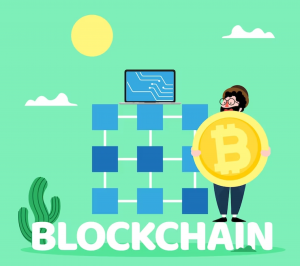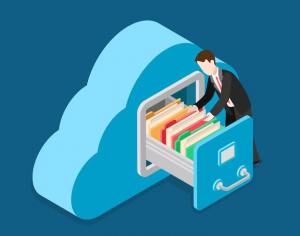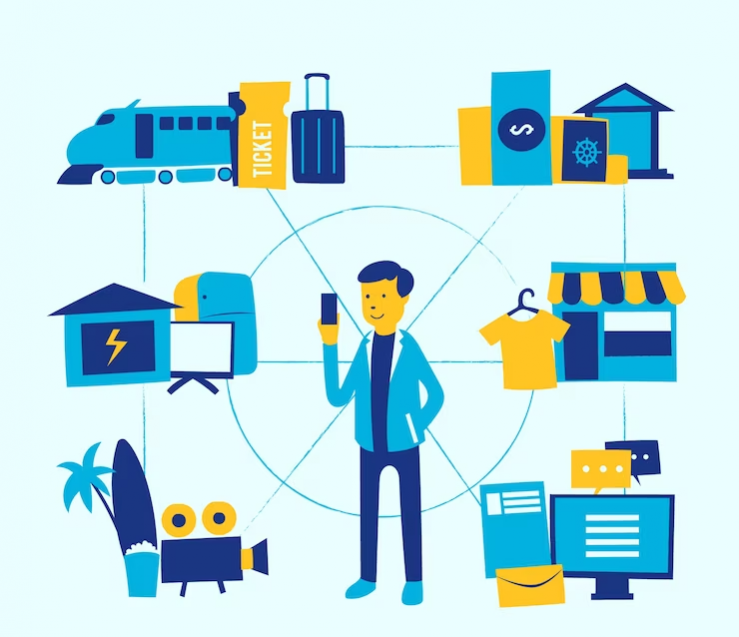Blockchain for Decentralization of Internet

Blockchain technology is emerging as a potential solution for issues like data privacy, censorship, and net neutrality as the internet has become increasingly centralized, there has been growing concern over issues like these. However, blockchain technology is emerging as a potential solution to these problems. In this blog, we’ll explore how blockchain can be used to decentralize the internet.
What is decentralization?
Decentralization is the process of distributing power and authority away from a central entity. In the context of the internet, it means reducing the control that centralized corporations and governments have over online activities. Decentralization can help protect user privacy, prevent censorship, and promote a more open and democratic internet.
In the context of technology, decentralization is the distribution of control and decision-making away from centralized entities, such as corporations or governments, and towards individuals or smaller groups. This can be achieved through the use of decentralized technologies like blockchain, which allows for a network of peers to verify and approve transactions without the need for intermediaries.

How can blockchain help decentralize the internet?

Blockchain is a distributed ledger technology that uses cryptography to create a secure and transparent network. It allows multiple parties to verify and approve transactions without the need for intermediaries. This makes it ideal for creating decentralized applications (dApps) that can operate independently of central authorities.
Here are some ways blockchain can be used for decentralization of the internet:
Decentralized Domain Name System (DNS)
The domain name system (DNS) is a centralized system that translates domain (such as www.example.com) names into IP addresses(such as 192.0.2.1) . However, this system is vulnerable to censorship and can be controlled by governments or corporations. With blockchain, a decentralized DNS can be created, which would be more resistant to censorship and control. This could be achieved through blockchain-based domain name systems like Unstoppable Domains, Handshake, or Ethereum Name Service (ENS).
However, there is a growing movement towards decentralized domain name systems, which aim to create a more democratic and censorship-resistant alternative to the current centralized DNS. Decentralized domain name systems are based on blockchain technology, which allows for a distributed network of peers to verify and approve domain name registrations and updates without the need for a central authority.
One example of a decentralized domain name system is the Ethereum Name Service (ENS), which is built on the Ethereum blockchain. ENS allows users to register human-readable domain names that are linked to their Ethereum addresses, making it easier for users to send and receive cryptocurrency payments without having to remember complex addresses.
Decentralized domain name systems have the potential to create a more democratic and open internet by reducing the risk of censorship and control by centralized authorities with the growing interest in blockchain and decentralized technologies, it is likely that decentralized domain name systems will continue to evolve and gain traction in the years to come.

Decentralized Social Networks

Decentralized social networks are social media platforms that are built on decentralized technology, such as blockchain, and allow users to interact and share content without the need for a central authority or intermediary. Decentralized social networks aim to address some of the issues that are associated with centralized social networks, such as privacy concerns, censorship, and control by a few powerful entities.
One of the main advantages of decentralized social networks is that they are more private and secure than centralized networks, as they do not rely on a central authority to manage user data. Instead, user data is stored on a distributed network of nodes that are owned and controlled by the users themselves, making it more difficult for third parties to access or manipulate user data.
Decentralized social networks are still in their early stages of development and face challenges such as scalability and user adoption. However, they have the potential to create a more democratic, open, and secure social network that is controlled by the users themselves, rather than a few powerful entities.
Decentralized Cloud Storage

Cloud storage services like Google Drive and Dropbox rely on centralized servers to store data. This creates a single point of failure that can be exploited by hackers or targeted by governments for surveillance or censorship. Decentralized storage networks like IPFS and Storj use blockchain technology to create a distributed network of storage devices. This reduces the risk of data loss, censorship, and surveillance.
In a decentralized cloud storage system, user data is stored on a distributed network of nodes that are owned and controlled by the users themselves, rather than a centralized authority or intermediary. This makes it more difficult for third parties to access or manipulate user data, and ensures that users have greater control over their data.
One example of a decentralized cloud storage platform is IPFS (InterPlanetary File System), which is a peer-to-peer file sharing system that allows users to store and share files in a decentralized and censorship-resistant manner.
Decentralized Marketplaces

Decentralized marketplaces are online marketplaces that are built on decentralized technology, such as blockchain, and allow buyers and sellers to transact with each other without the need for a central authority or intermediary. Decentralized marketplaces aim to address some of the issues that are associated with centralized marketplaces, such as high fees, lack of transparency, and control by a few powerful entities.
One example of a decentralized marketplace is OpenBazaar, which is a peer-to-peer marketplace that allows buyers and sellers to transact with each other using cryptocurrency.
Decentralized marketplaces have the potential to create a more transparent and democratic marketplace environment that is controlled by the users themselves, rather than a few powerful entities. However, they face challenges such as scalability and user adoption, as they require a significant shift in the current marketplace infrastructure. Nonetheless, with the growing interest in blockchain and decentralized technologies, it is likely that decentralized marketplaces will continue to evolve and gain traction in the years to come.
Conclusion
Blockchain technology has the potential to revolutionize the internet by enabling decentralization. With its secure and transparent network, blockchain can create a more democratic, censorship-resistant, and privacy-focused internet. By creating decentralized domain name systems, social networks, cloud storage, and marketplaces, blockchain can help build a more open and democratic internet that is controlled by its users rather than centralized authorities.







